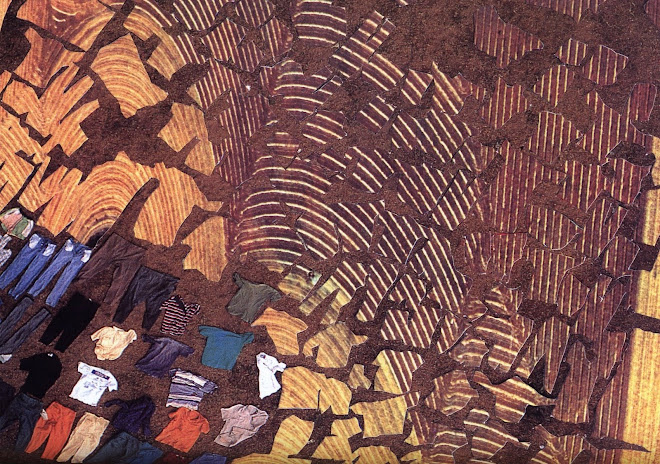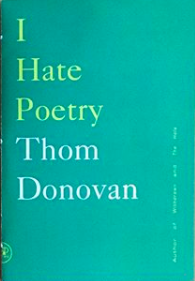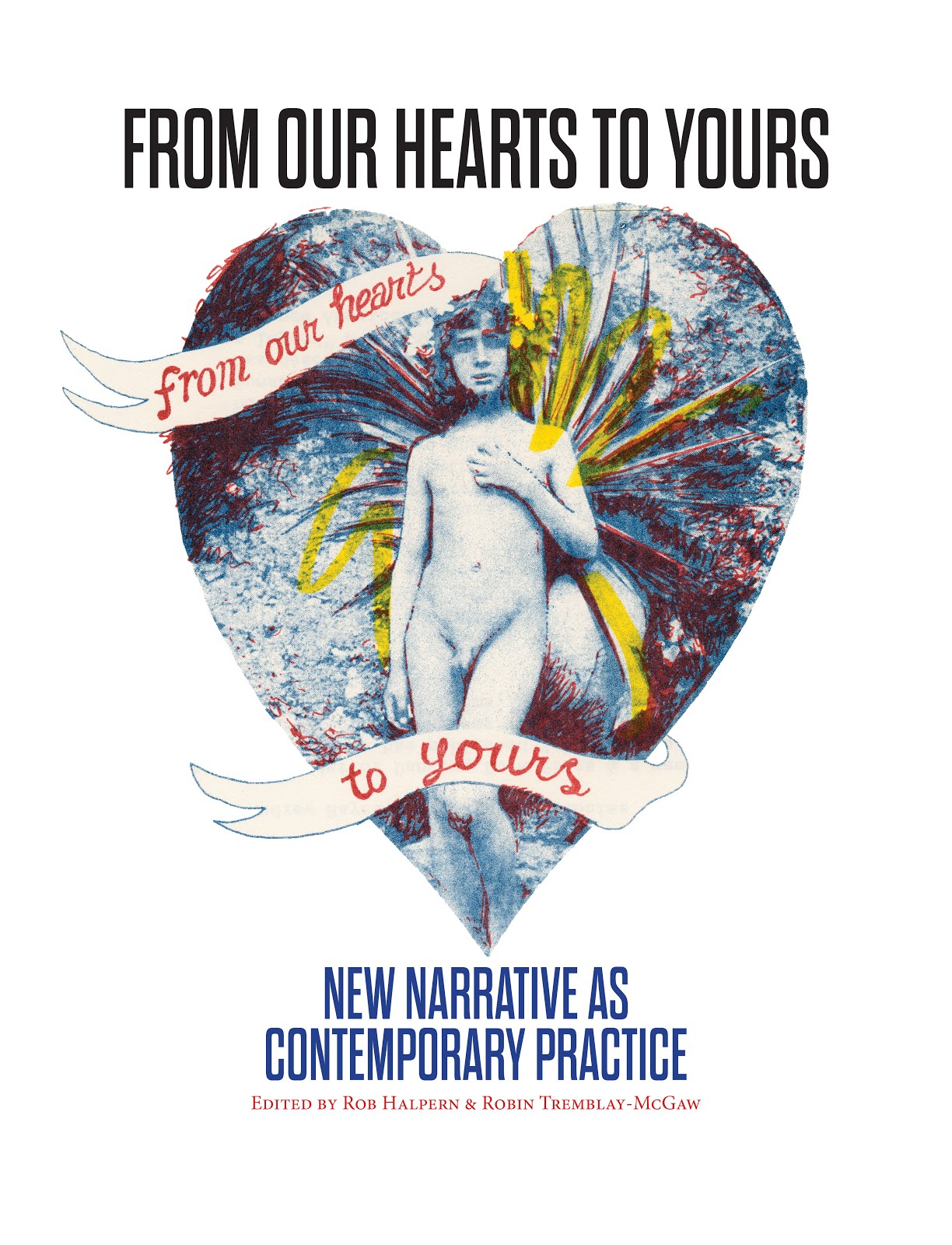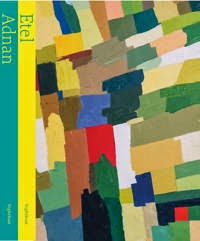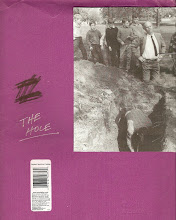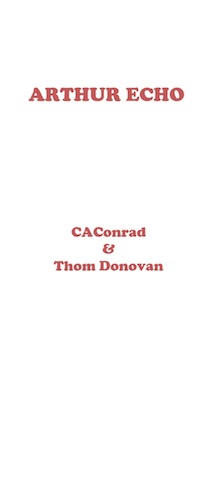There have been quite a few new contributions to the "Somatics as Aesthetic Practice" curriculum (formerly "Poetics of Disablement") at the Nonsite Collective's website recently. Here are some links:
Two Essays by Sue Schweik
"Aesthetics as Somatic Practice" workbook pages
Patrick Durgin on disability and poetics
Raúl Zurita at the School of Nursing: The Poetics of Healing
About "That Same Nowhere"
Tuesday, May 26, 2009
Thursday, May 21, 2009
Bhanu Kapil interviewed by Lisa Birman
Check out this interview of Bhanu Kapil at Trickhouse.
Lisa Birman: ...In Ars Poetica in 2007, you said, “… if poetry is written in a third space, some place less obvious than the colours blue or red, then where is that space?” You do posit that space, in Ars Poetics, but now is a different time and space. So, where is that space?
Bhanu Kapil: It’s the darkest space possible. I wait until the garden has gone dark, for example, before throwing a book into it, and sometimes, the whole day passes without writing or thinking but with the intense longing to do those things. When I was a child, for example, I forced my parents, and the Manders, the elderly couple whose car it was – we were all squashed in on a drive around Lake Coniston – to pull over next to a cobblestone bridge. Mrs. Manders had already pointed it out as the bridge Wordsworth sat beneath to write poems. I was thirteen or fourteen, and clearly, already, unmarriageable, as I demanded that they stop the car and let me out. As I recall, they waited in the car as darkness and a light rain fell, while I sat, knees up, hunched, under that bridge, writing a poem. But it wasn’t a poem. I was writing nonsense. I was making what I would now call notes. Curved space, rural space, British space. But what triples a space? What makes a space trans-generational, so that it triplicates the problem, just as sexual and relational dysfunction are the particulate trace of a disjunctive event far preceding them? A cube of dark space, bounded by Plexiglas…ideally, I’d write my first sentence in that room. The darkness, as I think of it now, is Pakistan. Because the third space, like Heidegger’s borderline, can’t be brought into language unless it’s after the fact. And so, I want that to open up when someone opens the book I haven’t written yet…the immensity and ephemerality of border space. I want to trans-sect it, enter it, lie down in it, at the same instant that language does. Building that vibration has meant preventing language from coming. It’s meant that 80 per cent of my time, at least for this current project, has been spent on site-specific concerns, you could say. I go to India, for example, to scrape the darkness into a jar. Darkness, and a kind of blazing white fog.
Lisa Birman: ...In Ars Poetica in 2007, you said, “… if poetry is written in a third space, some place less obvious than the colours blue or red, then where is that space?” You do posit that space, in Ars Poetics, but now is a different time and space. So, where is that space?
Bhanu Kapil: It’s the darkest space possible. I wait until the garden has gone dark, for example, before throwing a book into it, and sometimes, the whole day passes without writing or thinking but with the intense longing to do those things. When I was a child, for example, I forced my parents, and the Manders, the elderly couple whose car it was – we were all squashed in on a drive around Lake Coniston – to pull over next to a cobblestone bridge. Mrs. Manders had already pointed it out as the bridge Wordsworth sat beneath to write poems. I was thirteen or fourteen, and clearly, already, unmarriageable, as I demanded that they stop the car and let me out. As I recall, they waited in the car as darkness and a light rain fell, while I sat, knees up, hunched, under that bridge, writing a poem. But it wasn’t a poem. I was writing nonsense. I was making what I would now call notes. Curved space, rural space, British space. But what triples a space? What makes a space trans-generational, so that it triplicates the problem, just as sexual and relational dysfunction are the particulate trace of a disjunctive event far preceding them? A cube of dark space, bounded by Plexiglas…ideally, I’d write my first sentence in that room. The darkness, as I think of it now, is Pakistan. Because the third space, like Heidegger’s borderline, can’t be brought into language unless it’s after the fact. And so, I want that to open up when someone opens the book I haven’t written yet…the immensity and ephemerality of border space. I want to trans-sect it, enter it, lie down in it, at the same instant that language does. Building that vibration has meant preventing language from coming. It’s meant that 80 per cent of my time, at least for this current project, has been spent on site-specific concerns, you could say. I go to India, for example, to scrape the darkness into a jar. Darkness, and a kind of blazing white fog.
Wednesday, May 20, 2009
Vulva Speaking* (Into Bride)
Having Santa Claus in my body
The simultaneity of its contradictions
Where to go between steps (the first declivity)
Bewilderment of weight and displacement
Cezanne’s unhappiness at his roses dying too soon
As part of my being unteachable
Muscle memory--I imagined it effortlessly
The lover animal, the human animal
As if questioning if the act is virtual
Most of the work is lost
To extensivity (movement, projection, mobility)
No constancy to the momentum in space.
*all language taken from Carolee Schneemann's 5/18/2009 talk at St. Mark's Church
The simultaneity of its contradictions
Where to go between steps (the first declivity)
Bewilderment of weight and displacement
Cezanne’s unhappiness at his roses dying too soon
As part of my being unteachable
Muscle memory--I imagined it effortlessly
The lover animal, the human animal
As if questioning if the act is virtual
Most of the work is lost
To extensivity (movement, projection, mobility)
No constancy to the momentum in space.
*all language taken from Carolee Schneemann's 5/18/2009 talk at St. Mark's Church
Tuesday, May 19, 2009
Jane Sprague's Apache Roadkill

This little book packs a wallop. So much has been said by our parents/parent generation about Vietnam. Now the child tells the tale through the filter of adulthood. The effect is affecting--evoking the stuttering wail of Susan Howe's poetics or the telepathic syntactical jumble of one of Hannah Weiner's ms pages. Removed generationally from the event, do we as the (American) children of the event have a need to mourn and process? Yes! This book is a pitch perfect negotiation of the right (read "rite") of autobiography to work-through while resisting the deadening symbolization of collective memory (local, national, tribal, or otherwise). Read it and weep (literally).
"In 1969 all the children were killers and we weren't one of them eating paper, Kimmy and where were you I did not then and do not now know how to talk my father BULTACO and I remember the dirty flying that dirt track the way the pebbles felt flying up and hit you the smell slightly metal diesel some strong fuel mix which makes motorcycles go and I know or think we must've crawled skinny wrists and chubby while our fathers watched us I don't know where the women went but we would have been small enough to listen under trees and crawl just shy of the image"
--from Apache Roadkill
I am reading this Sunday...
at HomeBase IV with Dorothea Lasky and Katy Lederer. See the ad below. Thanks to Stuart Krimko and Christopher Stackhouse for inviting me:
Dear friends of Readings at Max Protetch,
Chris and I have put together a reading in conjunction with HomeBase IV for next Sunday, May 24, at 2:00pm. Perfect pre-bbq fare.
HomeBase is a roving public art project currently in its fourth incarnation at 232 East Broadway; the reading will be held there. Directions and further information here.
We're quite happy to have Thom, Dorothea, and Katy reading:
Thom Donovan edits the weblog Wild Horses of Fire (whof.blogspot.com), coedits ON Contemporary Practice, and is an ongoing participant in the Nonsite Collective. Since 2006 he has curated PEACE events series in New York City and he is also a curator for the SEGUE reading series. His recent poetry, essays, and reviews have been published by War and Peace vol. 4 (O Books), The Brooklyn Rail, MUSEO, and Vigilance Society. He currently teaches at Bard College and Baruch College.
Dorothea Lasky is the author of AWE (Wave Books, 2007) and Black Life (Wave Books, 2010), as well as several chapbooks. Currently, she studies creativity and 21st Century Learning at the University of Pennsylvania. Videos of her reading poems with other poets can be found on www.birdinsnow.com.
Katy Lederer is the author of the poetry collections Winter Sex (Verse Press, 2002) and The Heaven-Sent Leaf (BOA Editions, 2008), as well as the memoir Poker Face: A Girlhood Among Gamblers (Crown, 2003). She lives in Brooklyn.
Hope to see you!
Reading info:
Thom Donovan, Dorothea Lasky, Katy Lederer
Sunday, May 24, 2:00pm
at HomeBase IV
232 East Broadway
curated by Stuart Krimko and Christopher Stackhouse of Readings at Max Protetch
Dear friends of Readings at Max Protetch,
Chris and I have put together a reading in conjunction with HomeBase IV for next Sunday, May 24, at 2:00pm. Perfect pre-bbq fare.
HomeBase is a roving public art project currently in its fourth incarnation at 232 East Broadway; the reading will be held there. Directions and further information here.
We're quite happy to have Thom, Dorothea, and Katy reading:
Thom Donovan edits the weblog Wild Horses of Fire (whof.blogspot.com), coedits ON Contemporary Practice, and is an ongoing participant in the Nonsite Collective. Since 2006 he has curated PEACE events series in New York City and he is also a curator for the SEGUE reading series. His recent poetry, essays, and reviews have been published by War and Peace vol. 4 (O Books), The Brooklyn Rail, MUSEO, and Vigilance Society. He currently teaches at Bard College and Baruch College.
Dorothea Lasky is the author of AWE (Wave Books, 2007) and Black Life (Wave Books, 2010), as well as several chapbooks. Currently, she studies creativity and 21st Century Learning at the University of Pennsylvania. Videos of her reading poems with other poets can be found on www.birdinsnow.com.
Katy Lederer is the author of the poetry collections Winter Sex (Verse Press, 2002) and The Heaven-Sent Leaf (BOA Editions, 2008), as well as the memoir Poker Face: A Girlhood Among Gamblers (Crown, 2003). She lives in Brooklyn.
Hope to see you!
Reading info:
Thom Donovan, Dorothea Lasky, Katy Lederer
Sunday, May 24, 2:00pm
at HomeBase IV
232 East Broadway
curated by Stuart Krimko and Christopher Stackhouse of Readings at Max Protetch
Sunday, May 17, 2009
We Did It
And we are still doing it
We is still doing it
We and our allies
And the friends of we
We is powerful if only
In this that
It can make a policy
Of burying
The evidence of its crimes in
The wide open it has
Excuse upon excuse for this
It (the we) laughs
It off with a shrug
We points the finger at
Everyone else
Except itself
Or the market or
Geopolitical strategies
Or the military industrial
Complex which
Must be assuaged
And so the world
Is threatened
By we's example
And so we
Is threatened
By other we's
Would Kissinger survive
A minute before
An international court
Of justice not swayed
By the sovereignty
Of we would the Bushes?
The answer seems obvious
We is terrified
To account for its
Process of election
What is it about we that
Wants to make a man with brown
Skin detained sit naked
With a Playboy while
We takes pictures of him?
What perversity of we
Permits simulated drowning?
When will we finally feel
Some culpability in its we-ness?
We is still doing it
We and our allies
And the friends of we
We is powerful if only
In this that
It can make a policy
Of burying
The evidence of its crimes in
The wide open it has
Excuse upon excuse for this
It (the we) laughs
It off with a shrug
We points the finger at
Everyone else
Except itself
Or the market or
Geopolitical strategies
Or the military industrial
Complex which
Must be assuaged
And so the world
Is threatened
By we's example
And so we
Is threatened
By other we's
Would Kissinger survive
A minute before
An international court
Of justice not swayed
By the sovereignty
Of we would the Bushes?
The answer seems obvious
We is terrified
To account for its
Process of election
What is it about we that
Wants to make a man with brown
Skin detained sit naked
With a Playboy while
We takes pictures of him?
What perversity of we
Permits simulated drowning?
When will we finally feel
Some culpability in its we-ness?
Saturday, May 16, 2009
David Buuck's The Shunt

Palm Press is pleased to announce the publication of David Buuck's full-length collection of poetry: The Shunt
The Shunt provocatively explores one of our most ordinary experiences of social discomfort—embarrassment for the flailing comedian and his all too visible affective labor—in a strikingly intelligent and utterly heartbreaking way. For all its acerbic tonality, The Shunt’s affective agenda is thus the exact opposite of ironic cynicism, which is one of this brilliantly discomforting book’s most delightful surprises.—Sianne Ngai
With its stutters, fractures, puns, sarcasms, and ironies, The Shunt is part of a cluster of books recently written by US poets attempting to understand what it means to live in a country that is constantly bombing other countries. But with its relentless attention to the group psychosis that this state of siege induces in US citizens, The Shunt is also something sui generis. This is your brain on war. --Juliana Spahr
In a blow-up doll of "meaty-ations," David Buuck's "pre-enactments" push us over a speed hump--a "World Wide Wedge" whose word-wilding labors to de-desertify globalization as it runs on "war dash time." Split betwixt Ginsberg and Prince, paranomasia and stutter, every page of this "writing degree Xanax" will remind you to take your meds from a (n undisclosed) place in the bunk-bed of history.--Judith Goldman
The Shunt by David Buuck
102 pages
perfectbound
$15.00
ISBN 978-0-9789262-8-1
Available directly from Palm Press
www.palmpress.org
and from SPD,Small Press Distriubution
Friday, May 08, 2009
Habitus
"...created only,
not by them, but
by the idea of
institution itself
speaking through
them to you. it
is a dialogue
as old as time."
--Dorothea Lasky
That's us
In the habitus
With a face
Full of grace
And gravitas and
Fuck me any-
way while you call
My name that
Is you hail me so
That I know I am
Me each each
Other's allergy
The suffering
Entailed by
Everybody to
Be any body
A pound of
Flesh the pro-
verbial crack
Of the whip
In every-
thing one regards
As civilizing
By this are
We called
To love and
Work by this we are
Said to work.
not by them, but
by the idea of
institution itself
speaking through
them to you. it
is a dialogue
as old as time."
--Dorothea Lasky
That's us
In the habitus
With a face
Full of grace
And gravitas and
Fuck me any-
way while you call
My name that
Is you hail me so
That I know I am
Me each each
Other's allergy
The suffering
Entailed by
Everybody to
Be any body
A pound of
Flesh the pro-
verbial crack
Of the whip
In every-
thing one regards
As civilizing
By this are
We called
To love and
Work by this we are
Said to work.
Wednesday, May 06, 2009
Monday, May 04, 2009
Peterson on Poetry & Architecture at SEGUE
Here's Tim Peterson's write-up and introduction for SEGUE's "poetry and architecture" event the weekend before last. Having attended the event myself, I was struck by how monoceptual the 2nd architect, Benjamin Aranda, seemed in comparison with Robert Kocik and Vito Acconci, whose presentations converged for me at many moments. As far as I can tell, Aranda's work abstracts (or eschews?) urgent architecture problems such as how to create facility (in Kocik's case), and how to confuse public and private spaces through built objects and environments (in Acconci's). In turn, the work is little more than decorative, if not a predictable twist on big name, big money architecture (Frank Gehry's work came to mind seeing Aranda's). Aranda, in short, cookie-cuts fancy mathematics to design furniture, sculpture, and structures. The result is something seemingly very far from problems of embodiment and (public) space that I feel architects must turn their efforts to presently, if not always. That Aranda has collaborated with the painter Matthew Ritchie is telling given Ritchie's own cookie-cutter appropriations of complex systems theory to manufacture his paintings.
Saturday, May 02, 2009
"Some Darker Bouquets"
Kent Johnson has a provocative gallery currently up at MAYDAY magazine concerning the state of contemporary poetry criticism. The gallery includes a letter originally posted at Poetry Foundation, "Some Darker Bouquets," where Johnson argues for some kind of return to negative criticism as well as for the return of anonymous reviewing practices. It also includes responses to his letter by Kristin Prevallet, Rodrigo Toscano, Joe Amato and many others.
Personally, I am not interested in negative criticism (so called). In fact I'm not sure what a negative criticism would look like anymore--the field of poetry seems so heterogeneous and dispersed. The way I approach criticism tends to be from a position of desire. Mainly, I would like to understand my contemporaries better in relation to my own work. In the editorials for the magazine I coedit with Michael Cross and Kyle Schlesinger, ON Contemporary Practice, I have called this desire a desire for "discourse," sensing discourse's eclipse within a current culture of poetry. How can we understand our own problems as writers and culture workers better by writing critically about those we perceive as our contemporaries? How can this understanding lead to an encounter with larger cultural problems? How can poetry be a tool for the understanding, inquiry, learning--a way of getting to the whole shebang?
Negative criticism in poetry tends to chase its own tail. At best, it can clear the ground for evaluation; at worst, it is a mean-spirited gateway to legitimation compelled by the ego. Younger critics nowadays should attempt through discursive prose and critical experiment (which does not rule out non-discursive forms of writing) to make legible the writers they care about to themselves, if not to a larger readership. In other words, they should extend discourse. Any negativity, I believe, should issue from this initial impulse, which is an impulse of love, patience, and the desire for communication.
How to come to know our selves through our peers? How to come to know the world through a critical conversation? How to transform worlds coeval with this conversation? These are the questions I believe we must ask ourselves as "established" and "aspiring" critics. Criticism is only as "good" or "bad" as our desires and conduct. Critics should, thus, be asking themselves what they want through the production of criticism. None of this rules out having steady work, or even making criticism one's livelihood (as poets so often do out of economic necessity). It merely admits that the critic's livelihood should not overdetermine criticism as a form of action with certain consequences.
Personally, I am not interested in negative criticism (so called). In fact I'm not sure what a negative criticism would look like anymore--the field of poetry seems so heterogeneous and dispersed. The way I approach criticism tends to be from a position of desire. Mainly, I would like to understand my contemporaries better in relation to my own work. In the editorials for the magazine I coedit with Michael Cross and Kyle Schlesinger, ON Contemporary Practice, I have called this desire a desire for "discourse," sensing discourse's eclipse within a current culture of poetry. How can we understand our own problems as writers and culture workers better by writing critically about those we perceive as our contemporaries? How can this understanding lead to an encounter with larger cultural problems? How can poetry be a tool for the understanding, inquiry, learning--a way of getting to the whole shebang?
Negative criticism in poetry tends to chase its own tail. At best, it can clear the ground for evaluation; at worst, it is a mean-spirited gateway to legitimation compelled by the ego. Younger critics nowadays should attempt through discursive prose and critical experiment (which does not rule out non-discursive forms of writing) to make legible the writers they care about to themselves, if not to a larger readership. In other words, they should extend discourse. Any negativity, I believe, should issue from this initial impulse, which is an impulse of love, patience, and the desire for communication.
How to come to know our selves through our peers? How to come to know the world through a critical conversation? How to transform worlds coeval with this conversation? These are the questions I believe we must ask ourselves as "established" and "aspiring" critics. Criticism is only as "good" or "bad" as our desires and conduct. Critics should, thus, be asking themselves what they want through the production of criticism. None of this rules out having steady work, or even making criticism one's livelihood (as poets so often do out of economic necessity). It merely admits that the critic's livelihood should not overdetermine criticism as a form of action with certain consequences.
from Colombo, My Wife

Take my wife my life is not my life
My wife your life is not your life
Taken into these bare hands which make us haptic eyes
And evidence which we sometimes see this dirt
Is only dirt except where it is where it’s not supposed to be
A technology is what we leave to experts except when seeing
Becomes a kind of evidence we see
In the play-back of all that was meant
In this intention which is us whenever we believe our eyes
That it is a crime to live Colombo grasps
He holds his wife somewhere else in bed
Her body her voice which is all body I hear
You my wife in this Colombo my wife
And I am not afraid to live I am not afraid
To die if this seeing gives our deaths meaning
If it is a kind of sunshine only seen off-screen
Adumbrating the darker deeds and mayhem of this world.
Friday, May 01, 2009
Tom Clark's blogs
Tom Clark sent me links to his blogs, which are definitely worth spending some quality time with. Especially for their curious play between image and word:
Beyond the Pale
http://tomclarkblog.blogspot.com/
Vanitas
http://vanitasmagazine.blogspot.com/
Beyond the Pale
http://tomclarkblog.blogspot.com/
Vanitas
http://vanitasmagazine.blogspot.com/
Subscribe to:
Posts (Atom)
